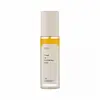What's inside
What's inside
 Key Ingredients
Key Ingredients

No key ingredients
 Benefits
Benefits

 Concerns
Concerns

 Ingredients Side-by-side
Ingredients Side-by-side

Citrus Junos Fruit Water
MaskingWater
Skin ConditioningMacadamia Integrifolia Seed Oil
Skin ConditioningPropanediol
SolventPentylene Glycol
Skin ConditioningAloe Barbadensis Leaf Juice
Skin ConditioningSimmondsia Chinensis Seed Oil
EmollientGlycerin
HumectantCentella Asiatica Extract
CleansingTocopherol
AntioxidantDunaliella Salina Extract
Skin ConditioningHelianthus Annuus Seed Oil
EmollientPelargonium Graveolens Flower Oil
MaskingCitrus Aurantium Dulcis Peel Oil
MaskingAmyris Balsamifera Bark Oil
MaskingCitronellol
PerfumingGeraniol
PerfumingLimonene
PerfumingLinalool
PerfumingCitrus Junos Fruit Water, Water, Macadamia Integrifolia Seed Oil, Propanediol, Pentylene Glycol, Aloe Barbadensis Leaf Juice, Simmondsia Chinensis Seed Oil, Glycerin, Centella Asiatica Extract, Tocopherol, Dunaliella Salina Extract, Helianthus Annuus Seed Oil, Pelargonium Graveolens Flower Oil, Citrus Aurantium Dulcis Peel Oil, Amyris Balsamifera Bark Oil, Citronellol, Geraniol, Limonene, Linalool
Water
Skin ConditioningAloe Barbadensis Leaf Juice
Skin ConditioningGlycerin
HumectantPropanediol
SolventBetaine
HumectantPentylene Glycol
Skin ConditioningAvena Sativa Leaf Extract
AstringentCanola Oil
EmollientLimnanthes Alba Seed Oil
Skin ConditioningHelianthus Annuus Seed Oil
EmollientArgania Spinosa Kernel Oil
EmollientCollagen Amino Acids
MoisturisingLeuconostoc/Radish Root Ferment Filtrate
AntimicrobialSodium Levulinate
Skin ConditioningSodium Gluconate
Skin ConditioningXanthan Gum
EmulsifyingPolyglyceryl-10 Stearate
Skin ConditioningSaccharomyces Ferment Lysate Filtrate
Skin ConditioningCitric Acid
BufferingPotassium Sorbate
PreservativeSodium Benzoate
MaskingWater, Aloe Barbadensis Leaf Juice, Glycerin, Propanediol, Betaine, Pentylene Glycol, Avena Sativa Leaf Extract, Canola Oil, Limnanthes Alba Seed Oil, Helianthus Annuus Seed Oil, Argania Spinosa Kernel Oil, Collagen Amino Acids, Leuconostoc/Radish Root Ferment Filtrate, Sodium Levulinate, Sodium Gluconate, Xanthan Gum, Polyglyceryl-10 Stearate, Saccharomyces Ferment Lysate Filtrate, Citric Acid, Potassium Sorbate, Sodium Benzoate
 Reviews
Reviews

Ingredients Explained
These ingredients are found in both products.
Ingredients higher up in an ingredient list are typically present in a larger amount.
Aloe Barbadensis Leaf Juice comes from leaves of the aloe plant. Aloe Barbadensis Leaf Juice is best known for helping to soothe sunburns. It is also anti-inflammatory, moisturizing, antiseptic, and can help heal wounds.
Aloe is packed with good stuff including Vitamins A, C, and E. These vitamins are antioxidants, which help fight free-radicals and the damage they may cause. Free-radicals are molecules that may damage your skin cells, such as pollution.
Aloe Barbadensis Leaf Juice also contains sugars. These sugars come in the form of monosaccharides and polysaccharides, folic acid, and choline. These sugars are able to help bind moisture to skin.
It also contains minerals such as calcium, 12 anthraquinones, fatty acids, amino acids, and Vitamin B12.
Learn more about Aloe Barbadensis Leaf JuiceGlycerin is already naturally found in your skin. It helps moisturize and protect your skin.
A study from 2016 found glycerin to be more effective as a humectant than AHAs and hyaluronic acid.
As a humectant, it helps the skin stay hydrated by pulling moisture to your skin. The low molecular weight of glycerin allows it to pull moisture into the deeper layers of your skin.
Hydrated skin improves your skin barrier; Your skin barrier helps protect against irritants and bacteria.
Glycerin has also been found to have antimicrobial and antiviral properties. Due to these properties, glycerin is often used in wound and burn treatments.
In cosmetics, glycerin is usually derived from plants such as soybean or palm. However, it can also be sourced from animals, such as tallow or animal fat.
This ingredient is organic, colorless, odorless, and non-toxic.
Glycerin is the name for this ingredient in American English. British English uses Glycerol/Glycerine.
Learn more about GlycerinHelianthus Annuus Seed Oil is the oil derived from the seeds of a Sunflower. Sunflower seed oil is non-fragrant. It is an emollient, meaning it helps to soften the skin.
Sunflower seed oil contains many fatty acids. The fatty acids found in sunflower seeds include (from highest amount to least): linoleic acid, myristic acid, palmitic acid, stearic acid, arachidic acid, oleic acid, and linolenic acid.
These fatty acids help the skin create ceramides. Ceramides play a role in repairing the skin barrier.
Helianthus Annuus Seed Oil helps moisturize the skin. This in turn helps the skin look more rejuvenated and smoother.
Sunflowers are rich in vitamin E.
Historians believe Indigenous cultures of North America domesticated sunflowers before corn. Thus they relied on sunflower oil for a variety of uses. One such use is moisturizing skin and hair.
Sunflower seed oil may not be fungal acne safe. We recommend speaking with a professional if you have any concerns.
Learn more about Helianthus Annuus Seed OilPentylene glycol is typically used within a product to thicken it. It also adds a smooth, soft, and moisturizing feel to the product. It is naturally found in plants such as sugar beets.
The hydrophilic trait of Pentylene Glycol makes it a humectant. As a humectant, Pentylene Glycol helps draw moisture from the air to your skin. This can help keep your skin hydrated.
This property also makes Pentylene Glycol a great texture enhancer. It can also help thicken or stabilize a product.
Pentylene Glycol also acts as a mild preservative and helps to keep a product microbe-free.
Some people may experience mild eye and skin irritation from Pentylene Glycol. We always recommend speaking with a professional about using this ingredient in your routine.
Pentylene Glycol has a low molecular weight and is part of the 1,2-glycol family.
Learn more about Pentylene GlycolPropanediol is an all-star ingredient. It softens, hydrates, and smooths the skin.
It’s often used to:
Propanediol is not likely to cause sensitivity and considered safe to use. It is derived from corn or petroleum with a clear color and no scent.
Learn more about PropanediolWater. It's the most common cosmetic ingredient of all. You'll usually see it at the top of ingredient lists, meaning that it makes up the largest part of the product.
So why is it so popular? Water most often acts as a solvent - this means that it helps dissolve other ingredients into the formulation.
You'll also recognize water as that liquid we all need to stay alive. If you see this, drink a glass of water. Stay hydrated!
Learn more about Water